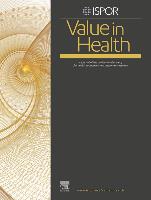Important Step in Establishing Agreement on the Knowledge, Skills, and Attributes Required in HEOR
 Lawrenceville, NJ, USA—September 28, 2020—ISPOR—the professional society for health economics and outcomes research (HEOR), announced today the publication of its Health Economics and Outcomes Research Competencies Framework™, an established set of HEOR competencies for professionals in the discipline. This is the first large scale effort to formally identify competencies from within the HEOR field. These competencies can serve as a tool to guide academic curricula, fellowships, and continuing education programs, as well as the assessment of job candidates for HEOR career opportunities. The framework can also provide HEOR professionals with a valuable resource to help guide their professional development in the field. The report, “Competencies for Professionals in Health Economics and Outcomes Research: The ISPOR Health Economics and Outcomes Research Competencies Framework,” was published in the September 2020 issue of Value in Health.
Lawrenceville, NJ, USA—September 28, 2020—ISPOR—the professional society for health economics and outcomes research (HEOR), announced today the publication of its Health Economics and Outcomes Research Competencies Framework™, an established set of HEOR competencies for professionals in the discipline. This is the first large scale effort to formally identify competencies from within the HEOR field. These competencies can serve as a tool to guide academic curricula, fellowships, and continuing education programs, as well as the assessment of job candidates for HEOR career opportunities. The framework can also provide HEOR professionals with a valuable resource to help guide their professional development in the field. The report, “Competencies for Professionals in Health Economics and Outcomes Research: The ISPOR Health Economics and Outcomes Research Competencies Framework,” was published in the September 2020 issue of Value in Health.
“The ISPOR HEOR Competencies Framework represents an important step forward to establishing agreement on the knowledge, skills, and attributes required for HEOR professionals,” said Laura T. Pizzi, PharmD, MPH, at Rutgers University, Piscataway, NJ, USA and lead author. “The framework encompasses both the traditional scientific methodological expertise expected of HEOR scientists and the soft skills necessary to be successful in the field.”
The framework comprises 41 competencies organized into 13 domains: Business Management, Career Development, Communication & Influence, Economic Evaluation, Health Policy & Regulatory, Health Service Delivery & Process of Care, Study Approaches, Patient-Centered Research, Methodological & Statistical Research, Clinical Outcomes, Health Technology Assessment, Epidemiology & Public Health, and Organizational Practices.
The ISPOR Institutional Council and Faculty Advisor Council used a collaborative process to identify and validate the framework. The process entailed expertise from the council members combined with natural language processing to examine competencies included in ISPOR Career Center HEOR job postings, qualitative input from a focused Institutional Council–Faculty Advisor Council workgroup, and quantitative input from 3 surveys of mutually exclusive ISPOR member groups: a general member survey to assess importance and relevance of each competency, a faculty member survey to assess the extent to which HEOR graduate degree programs cover each of the competencies, and a student member survey to assess exposure to each of the competencies.
“As the premier HEOR professional society, ISPOR plays a leadership role in these efforts and is poised to directly affect workforce competence through its conferences, webinars, and education programs,” said Jim Murray, PhD, senior fellow at Eli Lilly and Company and senior author on the paper. “We are continuing to develop the competencies by the creation of specialty tracks with the relevant, individual competencies mapped into them.”
The ISPOR Health Economics and Outcomes Research Competencies Framework project was initiated in 2016 through the ISPOR Institutional Council, which is a diverse group of representatives from pharmaceutical, medical device, and service provider companies that strive to promote ISPOR’s mission by providing insight to the Board of Directors. Additional information on the initiative can be found on the ISPOR website.
###
ABOUT ISPOR
ISPOR, the professional society for health economics and outcomes research (HEOR), is an international, multistakeholder, nonprofit dedicated to advancing HEOR excellence to improve decision making for health globally. The Society is the leading source for scientific conferences, peer-reviewed and MEDLINE®-indexed publications, good practices guidance, education, collaboration, and tools/resources in the field.
Website | LinkedIn | Twitter (@ispororg) | YouTube | Facebook | Instagram
ABOUT VALUE IN HEALTH
Value in Health (ISSN 1098-3015) is an international, indexed journal that publishes original research and health policy articles that advance the field of health economics and outcomes research to help healthcare leaders make evidence-based decisions. The journal’s 2019 impact factor score is 4.748. Value in Health is ranked 5th of 87 journals in health policy and services, 7th of 102 journals in healthcare sciences and services, and 19th of 371 journals in economics. Value in Health is a monthly publication that circulates to more than 10,000 readers around the world.
Website | Twitter (@isporjournals)